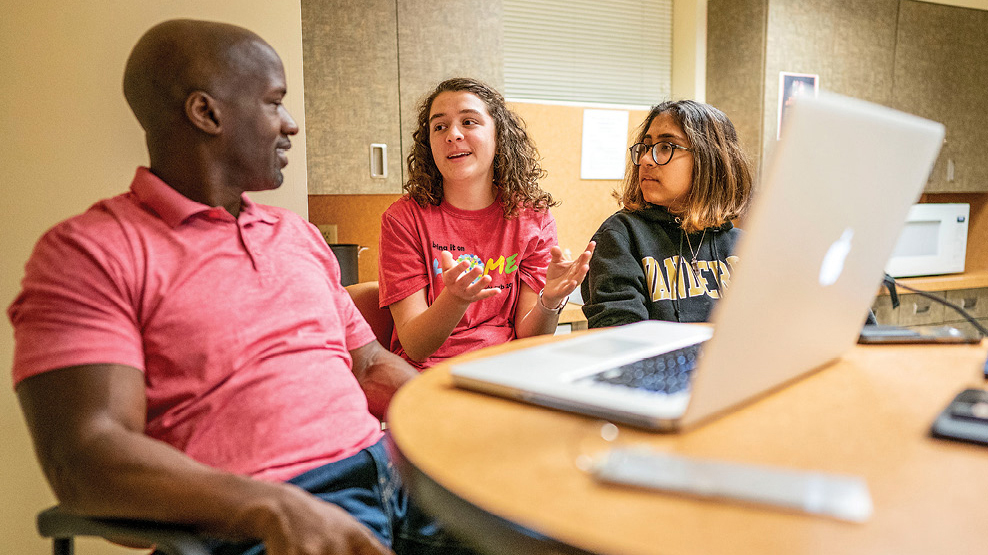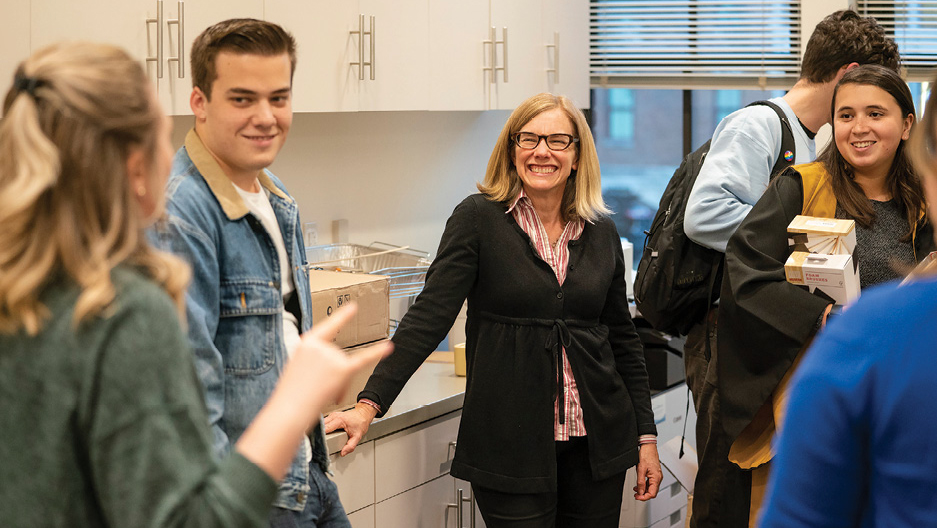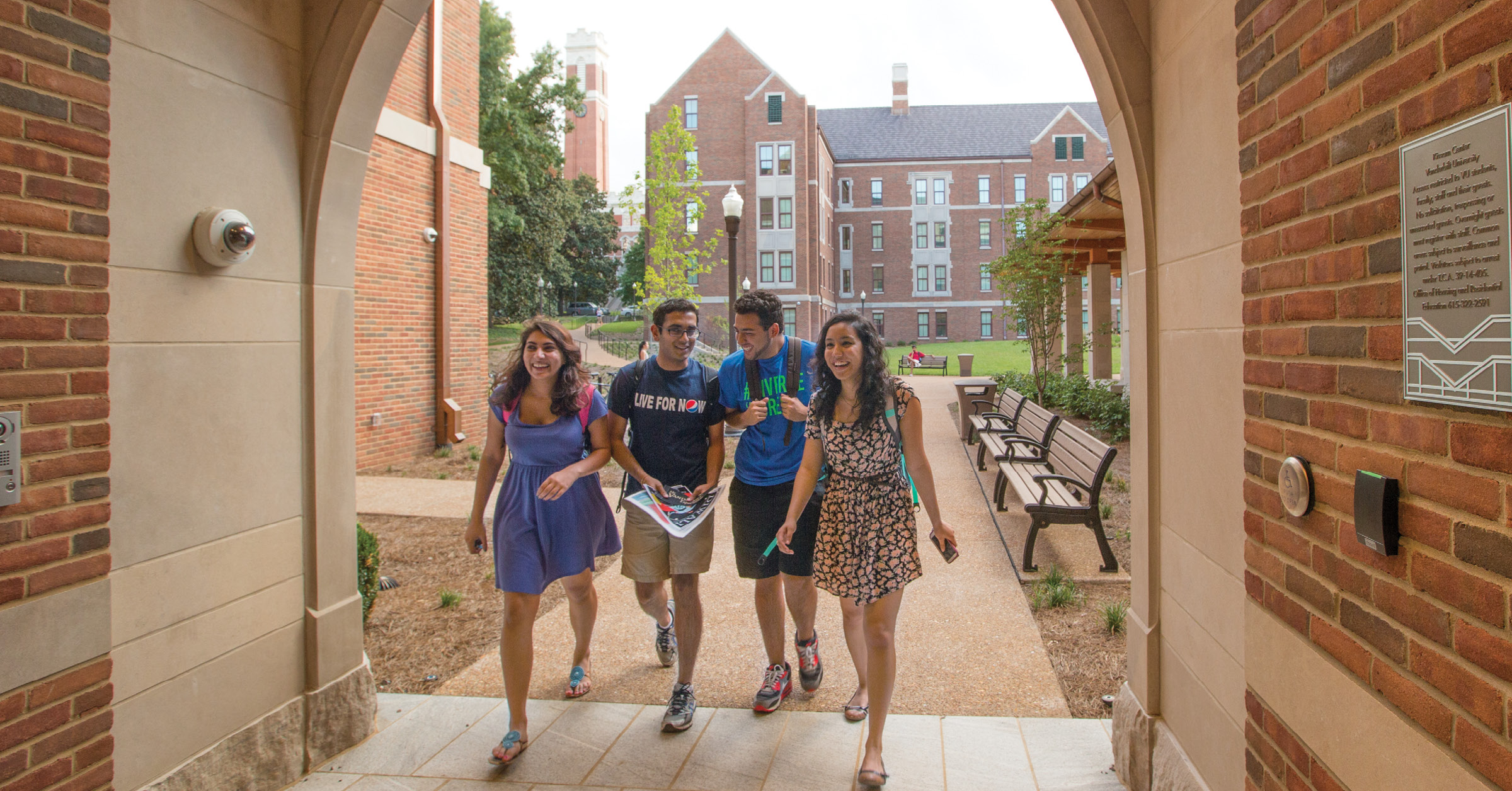With roots at some of the world’s oldest universities, Vanderbilt’s residential colleges provide undergraduates the opportunity to live and learn in close-knit, diverse communities overseen by faculty mentors.
Photography by Joe Howell, Anne Rayner, John Russell and Susan Urmy
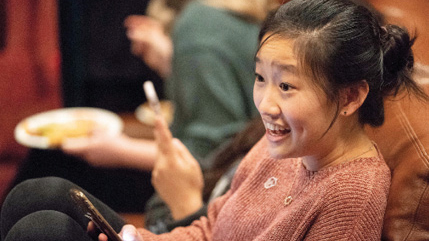
A TIGHTER SENSE OF COMMUNITY
Events like the annual Hogwarts-themed Magical Dinner at Bronson College not only foster camaraderie but also give students a much-needed respite from the daily demands of college life.
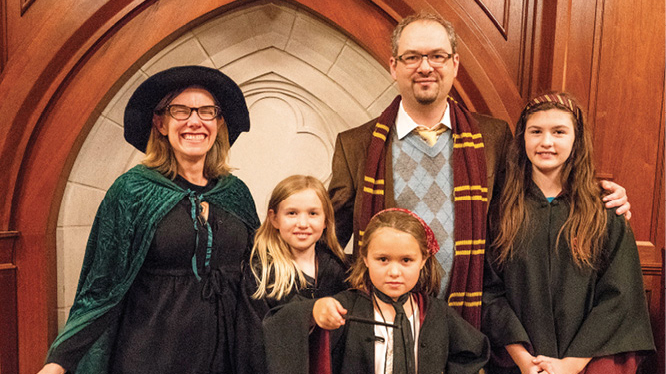
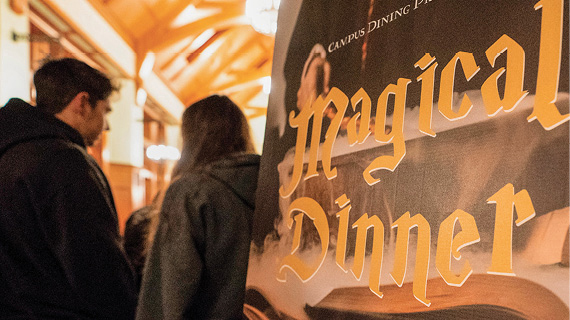
For Vanderbilt alumni who graduated more than a decade ago, residential colleges may seem like a far cry from the drab, maximally efficient dormitories built on campus in the 1960s to accommodate a quickly expanding student body. In fact, before the Class of 2012 moved onto The Martha Rivers Ingram Commons in 2008, never had there been anything on campus like these intentionally designed communities where undergraduates with different backgrounds are paired together and live alongside faculty.
But as new as it is to Vanderbilt, the idea for such communities is itself an old one, dating back to the earliest days of England’s Oxford and Cambridge universities. The tradition also has some notable long-standing examples here in the U.S., including at several Ivy League universities. Today Vanderbilt is among a select group of higher education institutions that offer such a thoughtfully designed undergraduate residential experience that can encompass all four years of a student’s time on campus.
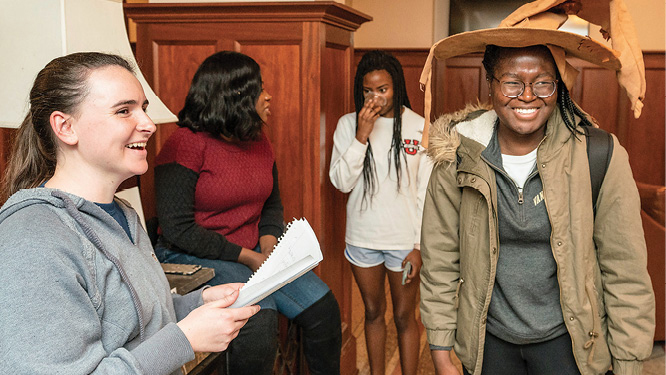
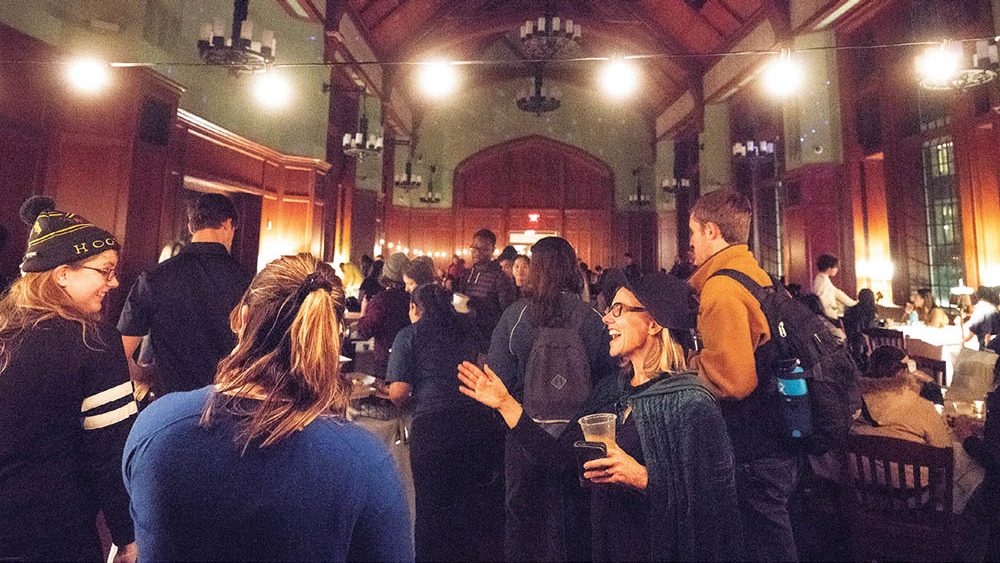
“Our modern version of residential colleges creates ties that nurture our community and strengthens one’s sense of belonging—in a world where that is much needed. Residential colleges also enrich the learning experience in a way that is mutually beneficial to our undergraduate students and the faculty who live alongside them,” says Interim Chancellor and Provost Susan R. Wente. “The benefits come from being part of a diverse, stimulating environment, where connections between faculty and students, creative inquiry and greater cultural awareness are prioritized. And grounding it all is our deep commitment to the personal well-being of our students with the ultimate goal of enhancing their success on campus and beyond.”
Vanderbilt requires all first-year students to live in one of the 10 houses on The Ingram Commons, each led by a faculty head who lives on-site and oversees innovative programming that gives each house its distinct identity. Sophomores, juniors and seniors then have the option of continuing to live alongside faculty in one of three residential colleges: E. Bronson Ingram College, Moore College or Warren College.
“When I was a student at Vanderbilt in the ’80s, there wasn’t this sense of community and identity that we’re trying to cultivate among the undergraduates now,” says Vanessa Beasley, BA’88, vice provost for academic affairs and dean of residential faculty. “What we’re offering them is a richer, fuller experience.”
Here we offer a look at life inside residential colleges, as seen through the eyes of two faculty heads — Rosevelt Noble, BS’97, PhD’03, senior lecturer of sociology and director of the Bishop Joseph Johnson Black Cultural Center, and Sarah Igo, the Andrew Jackson Professor of History and Director of American Studies, with affiliate appointments in law, political science, sociology and communication of science and technology. Noble is the head of Stambaugh House on The Ingram Commons, and Igo is the head of E. Bronson Ingram College.
We try to create a tighter sense of community through our programming and events, and offer our students a refuge from the stresses of college life. In the case of the Magical Dinner, most of them grew up with the Harry Potter books, so there’s lots of nostalgia wrapped up in it.
A COMMITMENT TO INCLUSIVENESS
From weekly “StamSweets” events to informal monthly dinners in the faculty residence, the programming at Stambaugh House on The Ingram Commons is designed to encourage more social interaction among the diverse group of first-year residents.
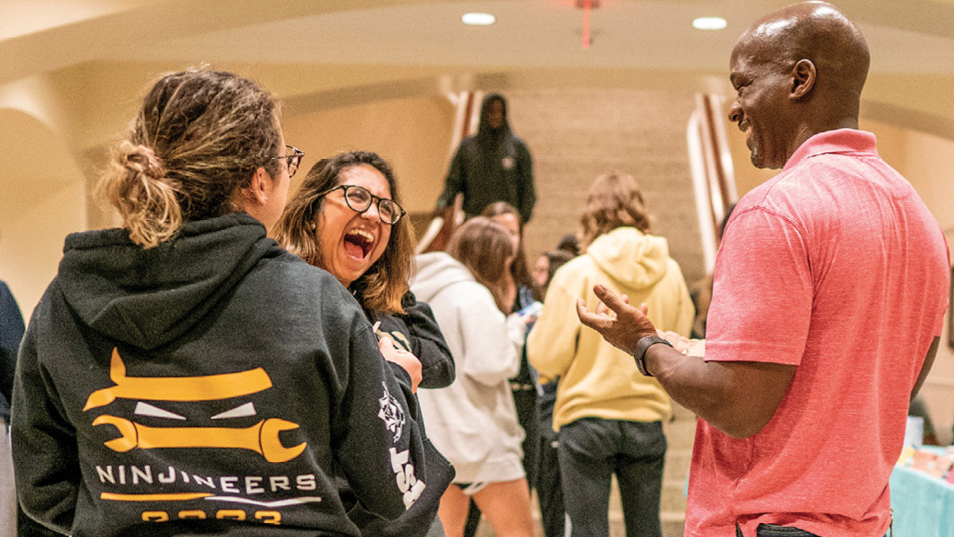
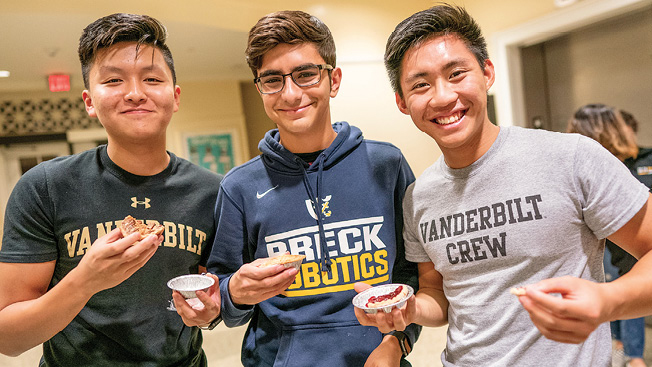
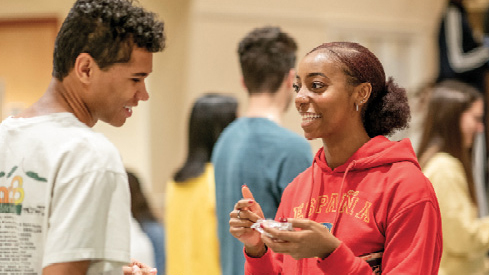
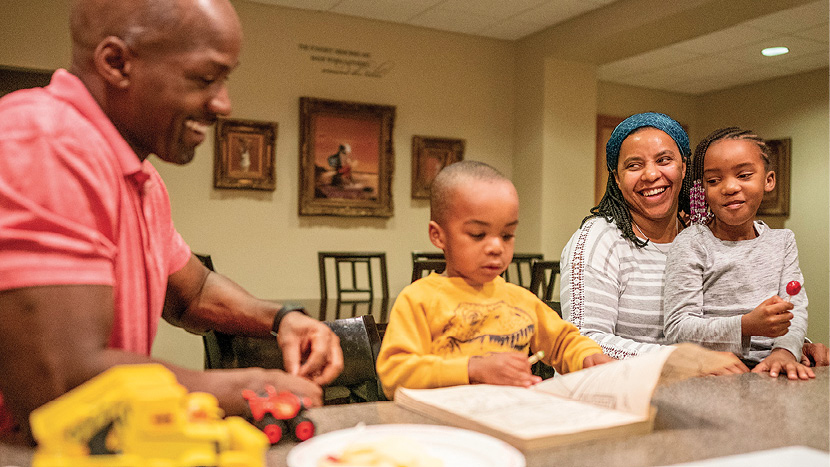
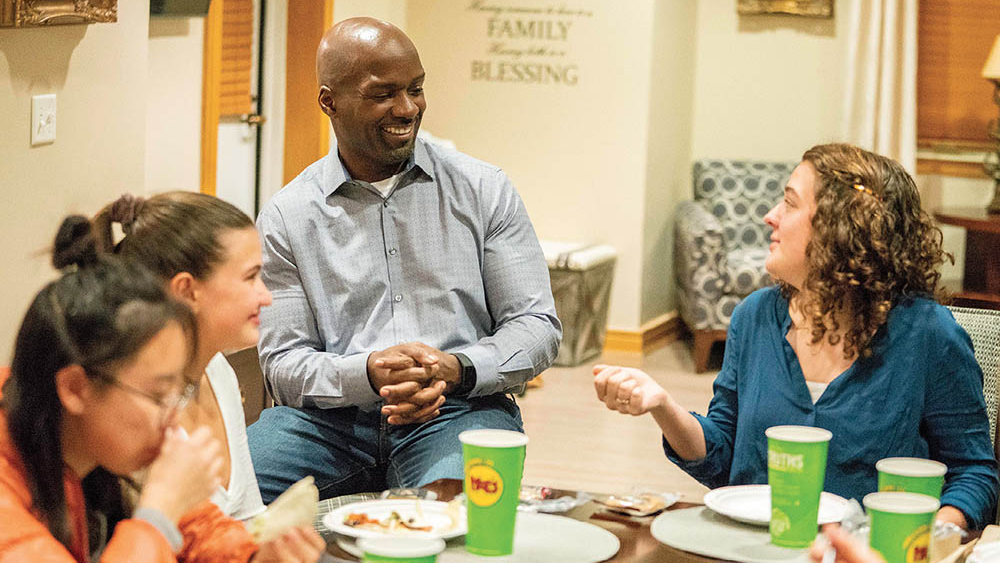
One thing I encourage among the residents is inclusive curiosity. That means not settling for what I call the low-hanging fruit—that is, only seeking out friends who are just like them. I tell them that the ‘reaches’—the people who on the surface don’t seem to have anything in common with them—may end up being their best friends. I remind them that as first-years they’re all in that awkward ‘Hi, my name is’ phase, so why not embrace that and reach out to people they wouldn’t normally reach out to?
![Resident Adviser Riley Alexander (left), AJ Kolondra (center) and Walt Siv visit with each other in E. Bronson Ingram College. “You never have to go far [in Bronson] for a good conversation with other residents or the faculty head, who personally values each and every one of those conversations,” Kolondra says.](https://cdn.vanderbilt.edu/vu-news/files/20230520092329/center-wide-lg-2c.jpeg)
RESIDENTIAL COLLEGES FAQs
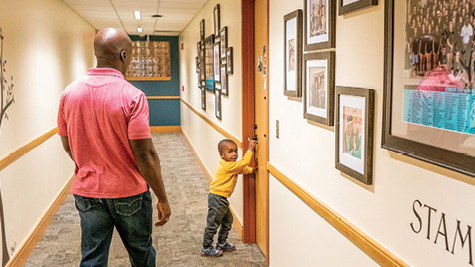
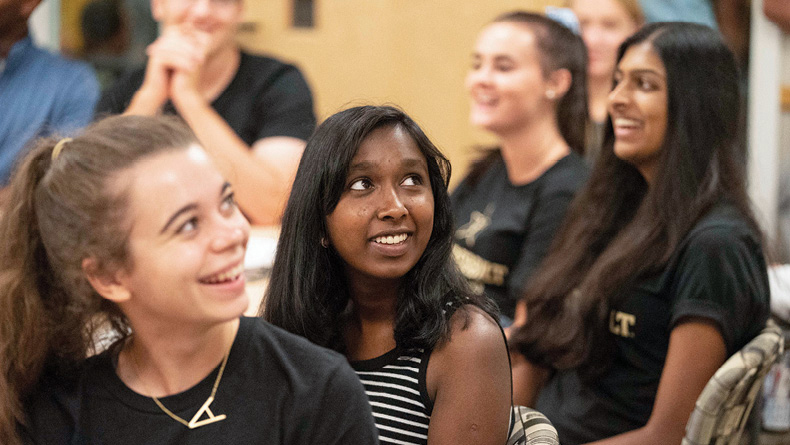
LEARNING OUTSIDE THE CLASSROOM
Guest lectures by faculty and Blair School of Music student performances are just some of the enriching educational opportunities available to students living in residential colleges.
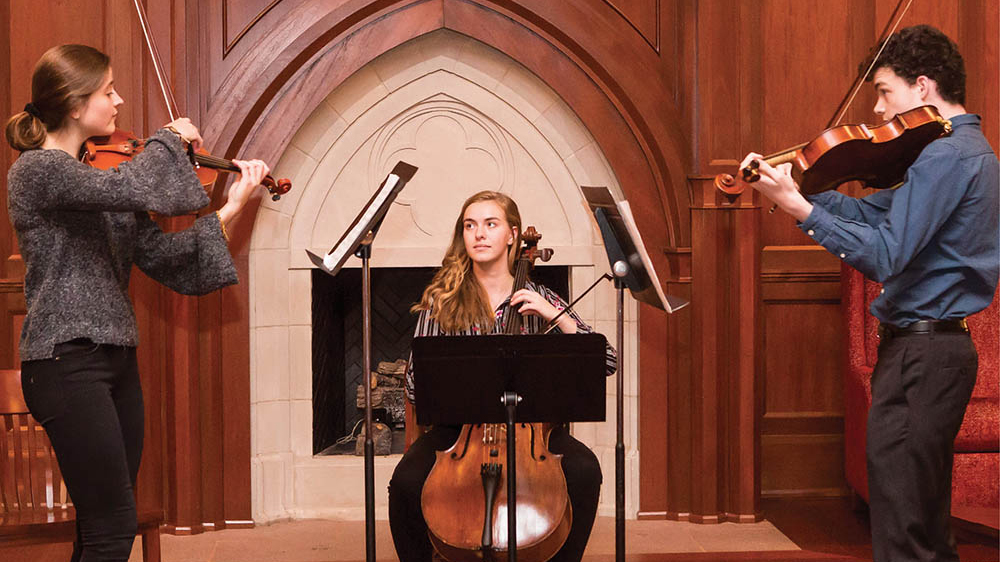
In the classroom, the interaction between faculty and students is often very formal. But the events we host at Bronson, like the dinners with guest speakers, help break down that divide. Our residents have taken part in fascinating, freewheeling discussions with faculty on everything from the exploration of Mars to prisoners’ rights.
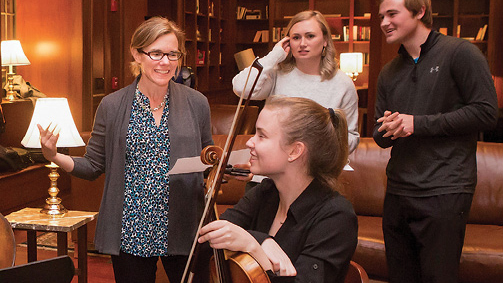
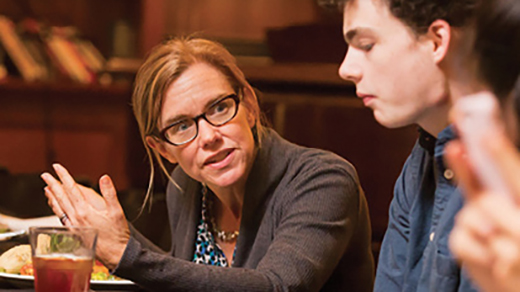
ACCESS TO MENTORING
Residential colleges give faculty heads a chance to get to know students on a more personal level and to offer them advice and counseling that wouldn’t be possible in a typical classroom setting.
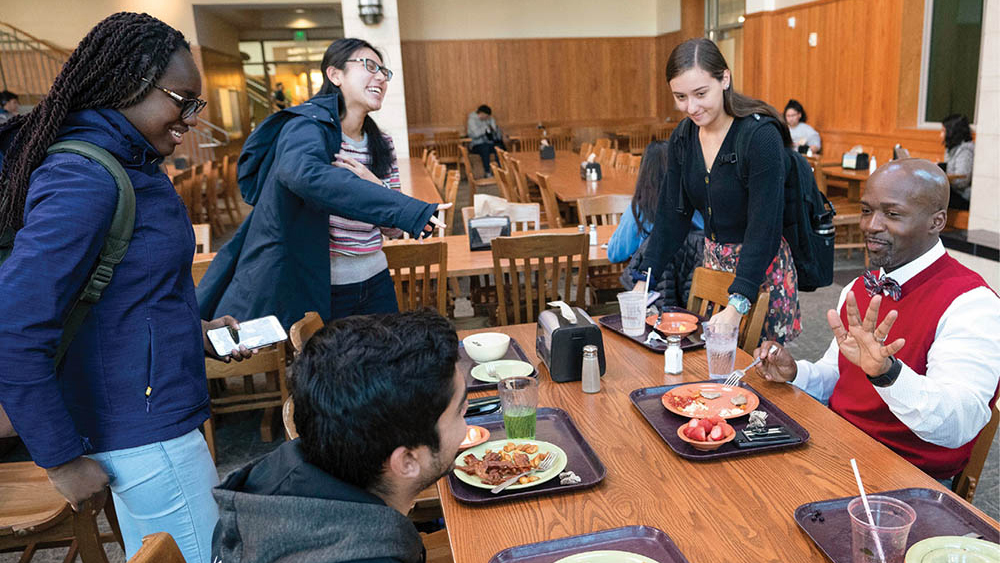
I’m someone who genuinely enjoys mentoring students and watching them thrive, so serving as faculty head of house has been a fun job for me. But my job also has been made a lot easier by the network of faculty and staff across campus who are looking out for the students and can tell me, for example, when someone is struggling. We’re all invested in helping our students succeed.
